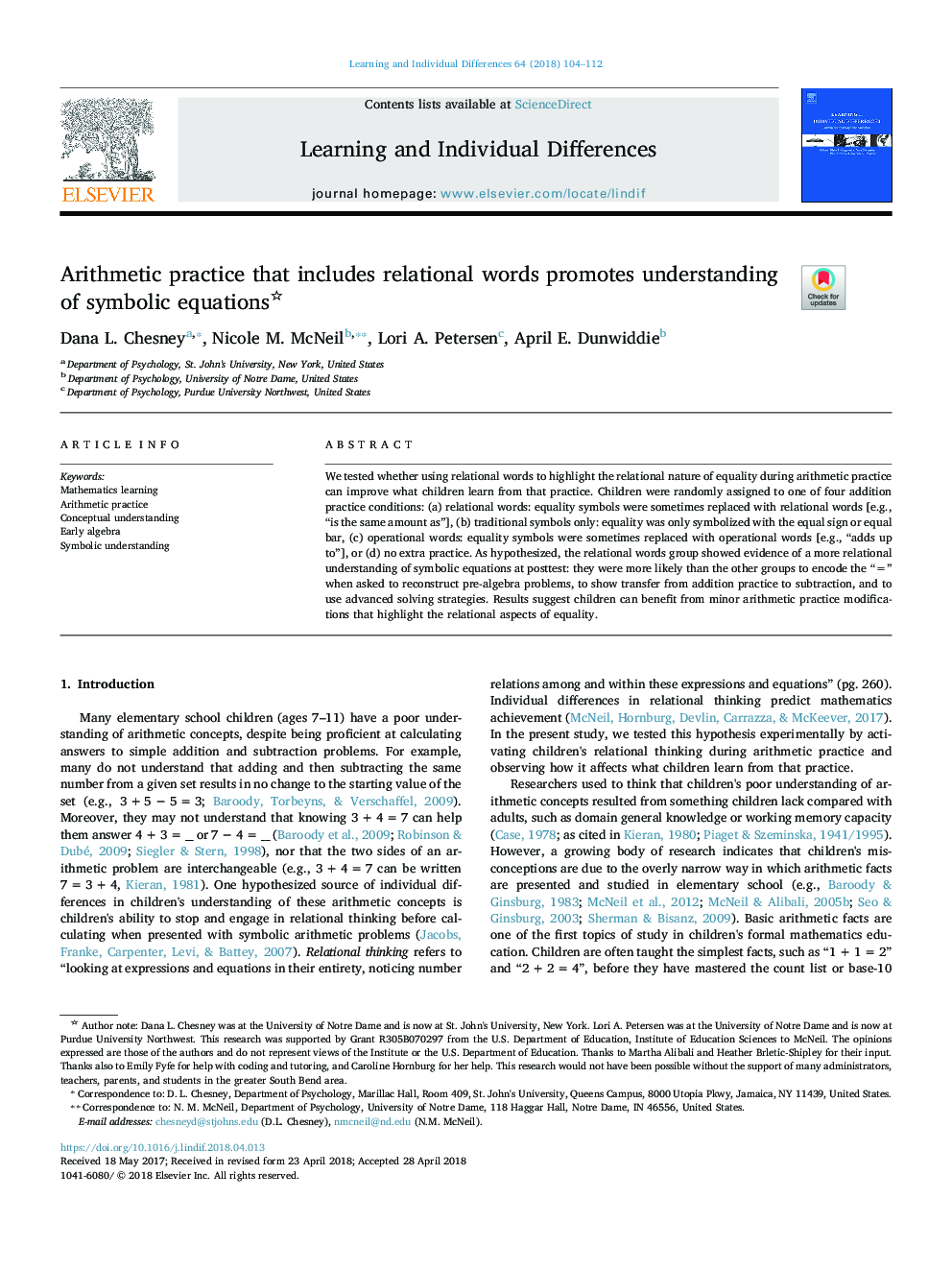| Article ID | Journal | Published Year | Pages | File Type |
|---|---|---|---|---|
| 6844370 | Learning and Individual Differences | 2018 | 9 Pages |
Abstract
We tested whether using relational words to highlight the relational nature of equality during arithmetic practice can improve what children learn from that practice. Children were randomly assigned to one of four addition practice conditions: (a) relational words: equality symbols were sometimes replaced with relational words [e.g., “is the same amount as”], (b) traditional symbols only: equality was only symbolized with the equal sign or equal bar, (c) operational words: equality symbols were sometimes replaced with operational words [e.g., “adds up to”], or (d) no extra practice. As hypothesized, the relational words group showed evidence of a more relational understanding of symbolic equations at posttest: they were more likely than the other groups to encode the “=” when asked to reconstruct pre-algebra problems, to show transfer from addition practice to subtraction, and to use advanced solving strategies. Results suggest children can benefit from minor arithmetic practice modifications that highlight the relational aspects of equality.
Related Topics
Social Sciences and Humanities
Psychology
Developmental and Educational Psychology
Authors
Dana L. Chesney, Nicole M. McNeil, Lori A. Petersen, April E. Dunwiddie,
